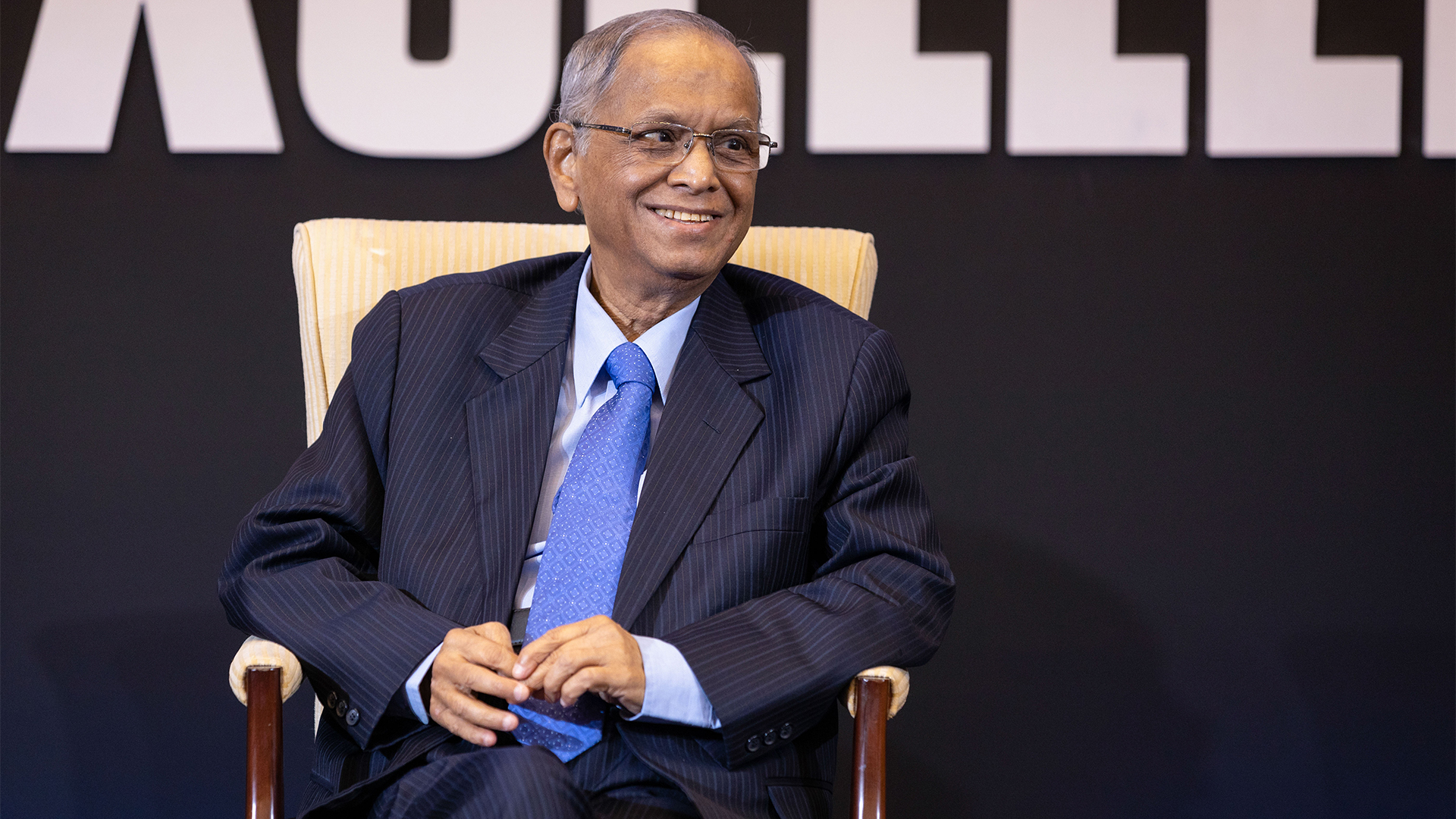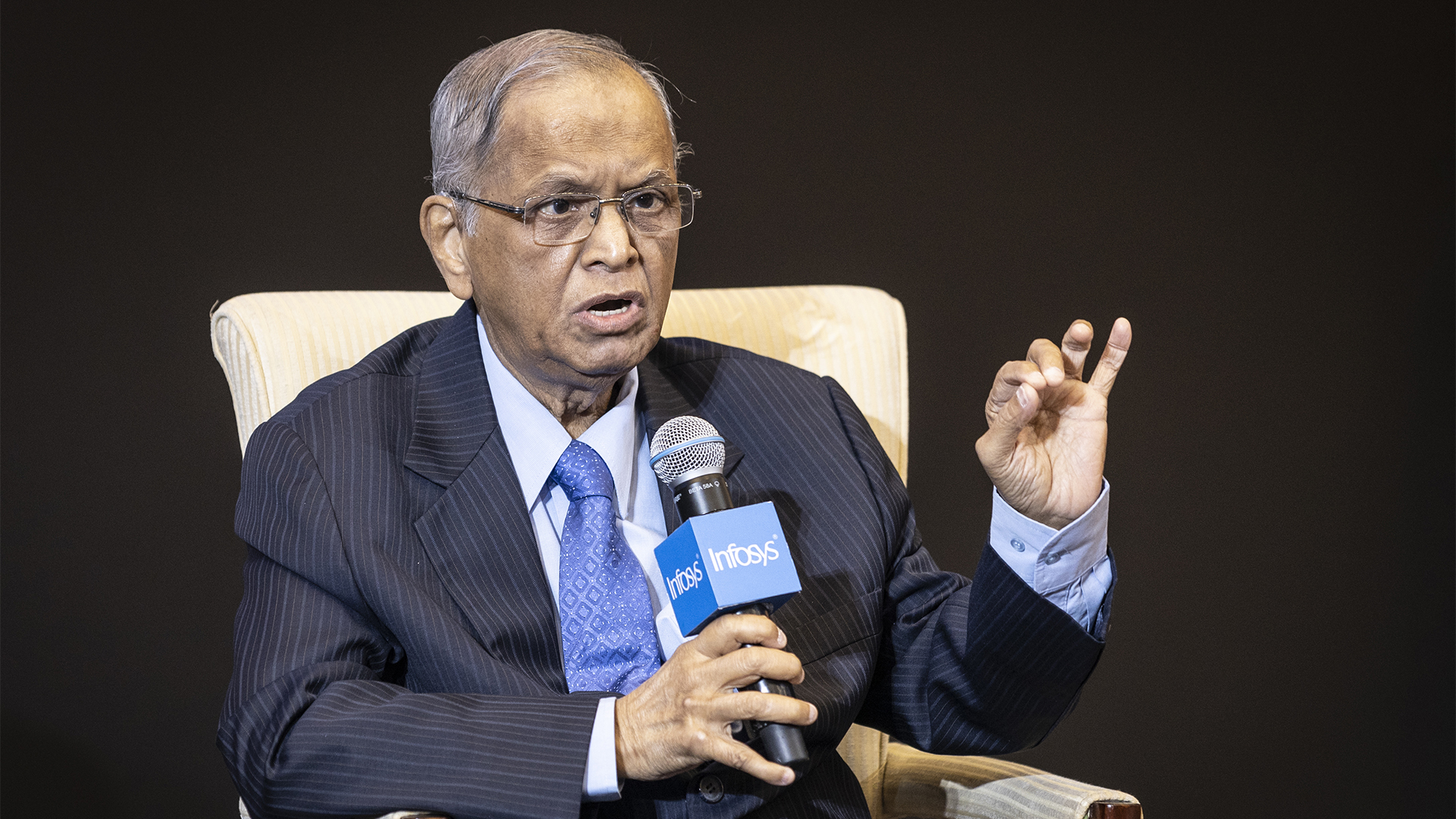Infosys co-founder Narayana Murthy called for a 70 hour week last year — now he says that’s not enough
Murthy thinks longer hours akin to China’s '996' approach are the key to success


Sign up today and you will receive a free copy of our Future Focus 2025 report - the leading guidance on AI, cybersecurity and other IT challenges as per 700+ senior executives
You are now subscribed
Your newsletter sign-up was successful
Infosys co-founder NR Narayana Murthy called for Indian workers to adopt a 70-hour week last year, but he thinks that’s still not enough and wants to take things further.
Speaking during a recent interview, Murthy called for an increase in working hours from 70 to 72. That number represents the total hours worked by those on the infamous '996' schedule, which involves working from 9am to 9pm, six days a week.
This approach, Murthy noted, appears to be the ideal format for enterprises to drive innovation, maximize employee productivity, and essentially represents real “hard work”.
“No individual, no community, no country, has ever come up without hard work,” he said. “When I say hard work, not going to the office and sleeping there. When I say hard work it means hard and smart work.”
While Murthy is keen on the 996 approach, it’s not quite all it’s cut out to be in terms of workforce productivity. The practice was widely employed by businesses in China, but was banned by lawmakers in August 2021.
Research from the World Health Organization found longer work schedules have a serious negative impact on both physical and mental wellbeing for employees.
Those working more than 55 hours a week were linked with higher health risks compared to those working a standard 35-40 hour week, for example.
Sign up today and you will receive a free copy of our Future Focus 2025 report - the leading guidance on AI, cybersecurity and other IT challenges as per 700+ senior executives
Not Murthy’s first rodeo
This isn’t the first time Murthy has advocated for longer working hours, or courted controversy on working practices. When he called for younger workers to up their hours to 70 last year, his comments sparked a national debate over working conditions and the potential long-term effects of this approach.
Those comments came hot on the heels of an interview with CNBC in which he criticized the concept of work-life balance and slammed the country’s shift to a five-day work week in 1986 as bad for the economy.
Despite Murthy’s views on the matter, a string of studies in recent years have found shorter working weeks actually make employees more productive.
A trial scheme of a four-day work week in Iceland, for example, was found to have marked benefits for employees, including higher mental and emotional wellbeing, with researchers hailing the pilot as a “real success story”.
Moreover, productivity and economic output actually increased at companies adhering to this schedule. A similar scheme at Microsoft Japan resulted in a 40% increase in output off the back of a four-day work week.
Long hours in tech are becoming a trend
While the 996 trend was outlawed in China, in big tech it’s become somewhat of a trend in recent months. A recent investigation by the New York Times showed this working practice has been gaining traction among some “hustle culture” entrepreneurs in Silicon Valley.
While the publication noted that entrepreneurs boasting about their own 9-9-6 approach on social media highlights anecdotal evidence of the trend gaining traction, separate reports from Axios found that some companies in the tech industry have begun actively promoting “7 day weeks” in job postings.
The industry’s scramble to drive AI adoption certainly hasn’t helped things, either, with big tech providers and enterprises alike pushing workers harder to deliver returns on investment with the technology.
Earlier this year, Google co-founder Sergey Brin suggested working 60 hours was the 'sweet spot of productivity' for developers.
In a leaked memo, Brin noted that those who “put in the bare minimum to get by” during their working week were “not only unproductive but also can be highly demoralizing to everyone else”.
For developers, the concept might not have such appeal given the profession has been contending with surging levels of burnout and mental health issues over the last five years.
JetBrains' 2024 State of the Developer Ecosystem report, for example, found nearly three-quarters of developers have dealt with burnout at some point in their career.
Aside from the obvious personal impact of burnout on individual employees, the issue has long-term implications for broader workforce efficiency and financial returns.
Analysis from Harness in late 2024 found the issue costs enterprises globally as much as $1 trillion each year.
Make sure to follow ITPro on Google News to keep tabs on all our latest news, analysis, and reviews.
MORE FROM ITPRO
- A third of cyber security pros report crumbling work-life balance
- Workers are demanding four-day weeks in tech
- Tech professionals are on the job hunt again – here’s what they’re looking for

Ross Kelly is ITPro's News & Analysis Editor, responsible for leading the brand's news output and in-depth reporting on the latest stories from across the business technology landscape. Ross was previously a Staff Writer, during which time he developed a keen interest in cyber security, business leadership, and emerging technologies.
He graduated from Edinburgh Napier University in 2016 with a BA (Hons) in Journalism, and joined ITPro in 2022 after four years working in technology conference research.
For news pitches, you can contact Ross at ross.kelly@futurenet.com, or on Twitter and LinkedIn.
-
 Cyber experts issue warning over new phishing kit that proxies real login pages
Cyber experts issue warning over new phishing kit that proxies real login pagesNews The Starkiller package offers monthly framework updates and documentation, meaning no technical ability is needed
-
 Microsoft hails advances in glass data storage
Microsoft hails advances in glass data storageNews Project Silica uses lasers to encode data into borosilicate glass, where it stays stable for thousands of years
-
 Microsoft could be preparing for a crackdown on remote work
Microsoft could be preparing for a crackdown on remote workNews The tech giant is the latest to implement stricter policies around hybrid working without requiring a full five days in the office
-
 IT professionals aren’t budging on flexible work demands – and more than half say they’ll quit if employers don’t meet expectations
IT professionals aren’t budging on flexible work demands – and more than half say they’ll quit if employers don’t meet expectationsNews Analysis from Randstad shows 40% of UK-based IT pros have quit over a lack of flexible work options, while 31% of workers globally have done the same.
-
 'The tide seems to be turning towards office attendance': 64% of hybrid business leaders want staff back in the office – but many worry that enforcing RTO mandates will drive employees away
'The tide seems to be turning towards office attendance': 64% of hybrid business leaders want staff back in the office – but many worry that enforcing RTO mandates will drive employees awayAnalysis Many UK business leaders want their staff back in the office more frequently, but they’re scared to implement return to office (RTO) mandates in fear of worker revolts.
-
 Employees are dead set on flexible working arrangements – three quarters would turn down a role that didn't offer hybrid options as work-life balance becomes more important than pay
Employees are dead set on flexible working arrangements – three quarters would turn down a role that didn't offer hybrid options as work-life balance becomes more important than payNews New research shows workers are increasingly demanding flexible working arrangements from employers.
-
 Nearly half of tech workers are seeking new roles – declining employee benefits and reduced flexible working options have staff looking elsewhere
Nearly half of tech workers are seeking new roles – declining employee benefits and reduced flexible working options have staff looking elsewhereNews While salaries are rising for tech workers, other benefits are in decline, leading to a fall in job satisfaction
-
 Infosys co-founder repeats calls for a 70-hour work week
Infosys co-founder repeats calls for a 70-hour work weekNews Narayana Murthy argues everyone working hard is the only way India can succeed
-
 Untethered: How CIOs and CISOs are paving the way for the new hybrid workforce
Untethered: How CIOs and CISOs are paving the way for the new hybrid workforceWhitepaper Effective techniques to transition from exposed legacy infrastructure to an effective zero trust strategy
-
 Unified endpoint management and security in a work-from-anywhere world
Unified endpoint management and security in a work-from-anywhere worldWhitepaper Learn how to converge endpoint management and security processes and systems to drive efficiency and reduce risk